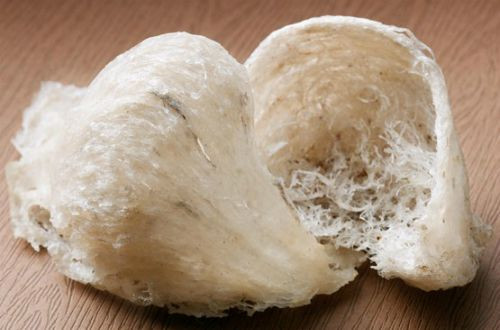How to use bird's nest for health benefits
If bird's nest is overcooked, cooked for too long or too quickly, or too much rock sugar is added, the nutrients will be wasted.
Use the right subject and dosage
Bird's nest has high nutritional value, including more than 18 essential amino acids and 31 rare elements, including amino acids that the body cannot synthesize itself. The product is used for many subjects such as the elderly, children, pregnant women, sick people...
Thanks to the 50-55% protein content necessary for growth, bird's nest helps children increase their resistance and develop their intelligence. In addition, the components of sialic acid, aspartic acid, phenylalanine, lysine, tryptophan... in bird's nest also help children strengthen their immune system, brain and stimulate the digestive system.
For women, threonine nutrients form elastine and collagen, 2 compounds that have positive effects on women's beauty and skin such as reducing acne, brightening and smoothing skin, reducing melasma and preventing aging. Especially for pregnant women, the nutrients in bird's nest also reduce fatigue, stress and provide minerals for the fetus.
Bird's nest also helps the elderly fight aging and disease; restore health; increase metabolism; strengthen immunity; improve heart function and reduce blood pressure... In addition, bird's nest is also used to nourish the sick, helping sick people recover quickly.
Using bird's nest in high doses and too frequently, because of the eagerness to see the effects, is a mistake. When the body does not absorb all the nutrients in the bird's nest, it will be a waste. In addition, using too much bird's nest can easily cause stomach cold and diarrhea because bird's nest is cold.
It is best to use bird's nest regularly but in small doses, avoid using too much at a time and only use occasionally. With homemade bird's nest, you should use 1-2 nests per week, divided into small portions for daily use. Because bird's nest is difficult and time-consuming to prepare, you can use liquid bird's nest products instead, with dosage as directed by the manufacturer.
Processing bird's nest
If bird's nest is not prepared properly, such as overcooking, boiling for too long or too quickly, or adding too much rock sugar, it will waste nutrients.
After purchasing, the raw bird's nest (with the nest intact) needs to be cleaned of feathers and impurities, soaked in clean water for 20 minutes and then the water is discarded. The raw bird's nest after being pre-processed is called fresh bird's nest.
 |
| Raw bird's nest (intact nest) needs to be cleaned of feathers and impurities. |
When preparing bird's nest, maintain a moderate temperature, do not boil it above 1000C, steam it instead of cooking it directly. Depending on the dish, you can steam bird's nest with rock sugar, lotus seeds, red apples or honey...
No matter what ingredients are used, rock sugar must be added to make the bird's nest sweet and remove the fishy smell. However, do not add too much rock sugar as it will reduce the effectiveness of the bird's nest. Bird's nest should only be used when warm, as it will lose its taste when cold.
Preserving bird's nest
Improper storage can also cause loss of bird's nest nutrients, even stomachaches, and is harmful to digestion. Raw bird's nest should be stored in a dry place, away from places that are too closed, damp, or exposed to light (sunlight energy can destroy the structure and nutritional composition of bird's nest).
Fresh bird's nest should be drained, stored in a covered container and kept in the refrigerator for about a week. For convenience, you can prepare a large amount of bird's nest at a time and divide it into small portions, put it in the refrigerator and eat gradually over the course of a week.
If you want to keep it for several months or a year, after removing the feathers, the bird's nest needs to be dried with a fan for about 14 hours. When the bird's nest is completely dry, store it in a sealed box or vacuum bag, away from sunlight. The bird's nest is inedible if the surface turns black, due to bacterial corrosion or severe oxidation.
According to VnExpress






